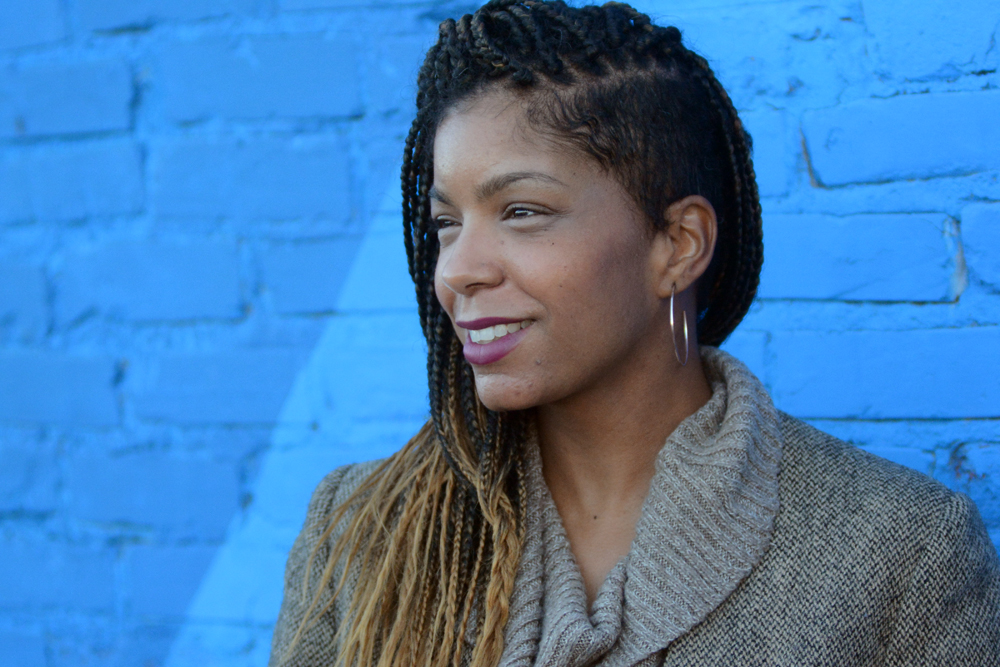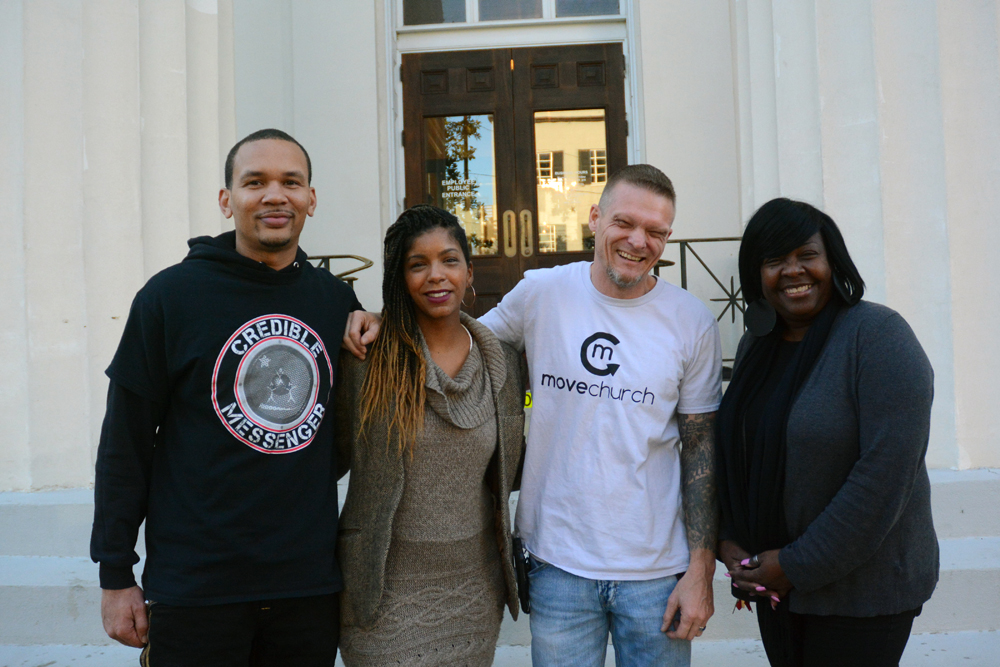JACKSON, Miss. — She remembers the frantic knocks at the door and the family friend who waited almost hysterical on the other side.
“He was saying my brother [Kam] had been shot. I ran to my father and mother’s room and told them. They both immediately got up, jumped in the car and went to the hospital,” said Rukia Lumumba, the 40-year-old founder of the People’s Advocacy Institute, a community resource and training incubator for social, political and economic development in this capital city of some 170,000.
For more information on Youth Gun Violence Prevention, go to JJIE Resource Hub | Youth Gun Violence Prevention
Lumumba is also in the early stages of implementing a violence interruption program that takes the unique position of treating violence as a public health crisis. The program will use the methods and strategies associated with disease control — detecting and interrupting conflicts, identifying and treating high-risk individuals, changing social norms and using trained community members, health practitioners, social service providers, police and city government to reduce violence, if not eliminate it.
Lumumba was in middle school when her older brother sustained a gunshot wound to the head during a drive-by shooting in Jackson.
[Related: Jackson, Miss., Turns to Innovative Program to Lower Its Gun Deaths]
“He was with the wrong person at the wrong time,” she said in her soft-spoken voice, but there is more to the story.
Lumumba said her brother was a good guy who made some bad choices coupled with a series of dynamics that pushed him down a shady path. Classmates ridiculed him for a bad stutter, and he learned to fight at an early age. From there he joined a tough crowd and dropped out of school in the eighth grade. His rebellious nature landed him in juvenile detention. After his release, Lumumba recognized that her brother had changed and not for the better.
“To some extent, he had the feeling like he could take on the world and nobody could mess with him,” she said. “‘If anyone tries to challenge me I’m going to take them down.’ He had that kind of mentality and confidence. It was not a healthy confidence. It was confidence rooted in anger.”
Although her brother, now 48, survived the gunshot wound, he suffers from short-term memory loss and permanent paralysis to the left side of his body.
Tragedies like his and others catalyze her most recent work.
Experience with D.C., N.Y. programs
Lumumba wants to attack the weed from the root. And her efforts could create a much-needed calm in the storm of violence that has been plaguing disenfranchised and blighted communities throughout Mississippi.
“I honestly believe that the problem with violence is one of inequality in the same way that health disparities exist due to inequality. I believe that we are not as healthy as we could be because of this inequality, and violence is absolutely a health epidemic,” she said.
Early on, Lumumba said she knew she wanted to change the justice system that offered no rehabilitation or redemption for the people it locked up.
“People are there for the rest of their lives. They will not have an opportunity to repair the harm that has been committed. Families are suffering, and nothing is made better in our community,” she said.
While a political science major at Tougaloo College, she interned in New York City with Man Up! Inc., an alternative-to-incarceration program founded by Andre T. Mitchell. From there, she moved to Washington, D.C., and worked with similar programs and juveniles while earning her law degree from Howard University in 2006. Through her work in D.C. and New York, she began to connect with violence interruption organizations .
“It was always my goal to come back to Mississippi and facilitate programs,” Lumumba said. “I went to the other places to gain experience and learn, so I could come back and begin to create programs with my fellow Jacksonians and Mississippians; programs that we needed. My intent is to provide support to people who have been doing similar work here already.”
She is the daughter of the late Chokwe and Nubia Lumumba. Her father was a human rights attorney and the mayor of Jackson from 2013 until he died in 2014, a little over eight months into his term. Her younger brother, Chokwe Antar Lumumba, is also an attorney and the current mayor of Jackson.
“I grew up in a very active home; a community-active, politically active home,” she said.

Rukia Lumumba
‘Serving the underserved’
Longtime family friend Safiya R. Omari said Lumumba’s parents emphasized community service and taught those values by example.
“Rukia was a good student, very responsible, and very protective of her younger brother. … And much like her father, she was always ready to defend the rights of others when it came down to injustice,” said Omari, who served as chief of staff for the late Chokwe Lumumba and holds the same position in his son’s administration.
“I can remember her recruiting a group of her friends, my sons and her brother to help her start a summer camp for youth in the Virden Addition community [in Jackson] as a teenager,” she said. “As an undergraduate, she became an advocate for children in the child welfare system.” She is always there for those in need, she said. “She has demonstrated a passion for serving the underserved all of her life and continues to do so through her efforts with the violence interruption program. I’m so proud of the woman she has become.”
Born in Detroit, Lumumba spent most of her youth in Mississippi. She witnessed her mother’s unbridled support for her father even when he was repeatedly held on contempt charges as an attorney as a result of his rigorous and often confrontational defense style. He did not hesitate to call out racism and inequity when he witnessed it. She also remembers the ill-treatment she said he received from the mostly white mainstream public because of his political beliefs and the clients he represented.
She describes her mother as someone who worked to create a space for and traditions around family. Many times people are so engaged in communal work, Lumumba said, that they forget to build strong family support.
“They taught us a lot about our responsibility to tell our narrative. So that the people after us will know that they can overcome challenges, so that the people around us know that they are not alone in their struggle, and black people can know what we need to move on,” she said. “So we really learned a lot from them about what it was not only to be an activist but to truly be a person who generally loves people, and ... that our collective strengths and our collective struggles also lead to collective solutions.”
This story has been updated.
This story was produced in conjunction with the Mississippi Center for Investigative Reporting.
It is part of our project on Targeting Gun Violence. Support is provided by The Kendeda Fund. We are solely responsible for the content and maintain editorial independence.
